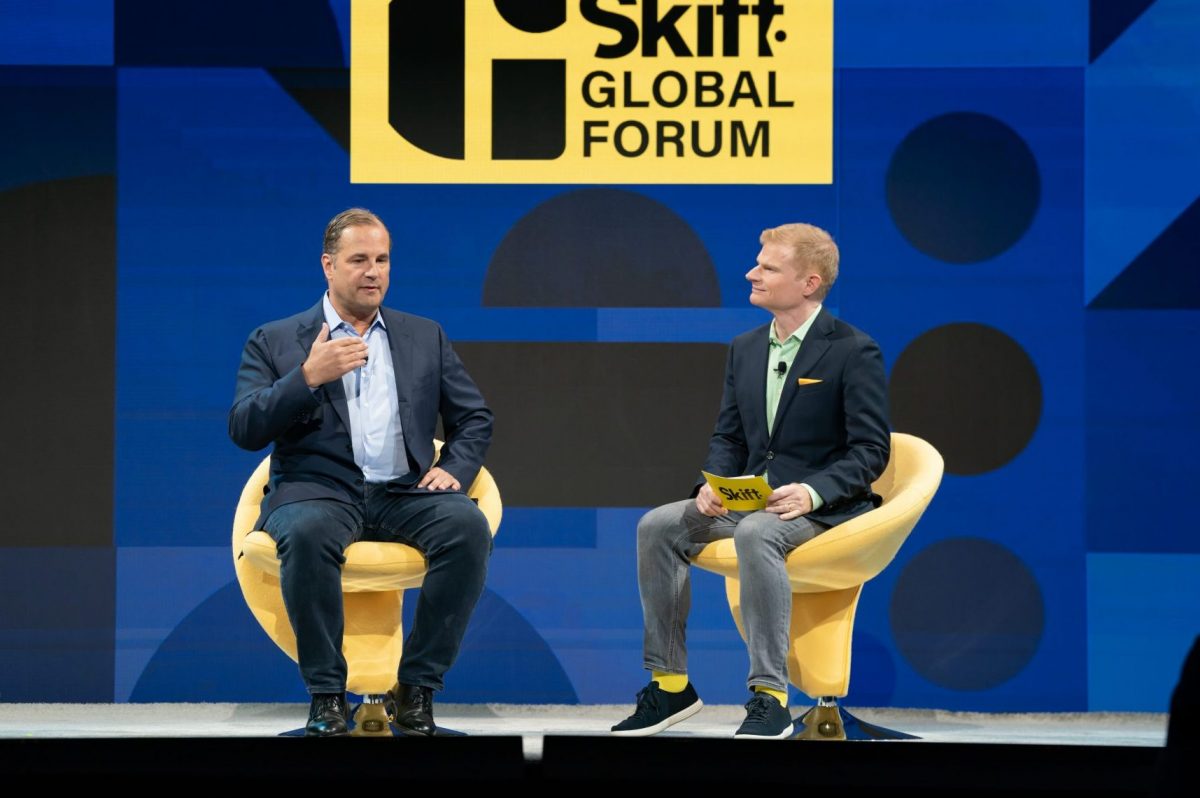Full Video: Marriott International CEO at Skift Global Forum 2022

Skift Take
Marriott International CEO Anthony Capuano explained at Skift Global Forum in New York City why it's unlikely his company will make a major merger and acquisition deal in the near future, what steps it's taking to increase diversity in executive roles and and why the world's largest hotel needs to innovate.
Capuano also touched on, during his conversation with Senior Hospitality Editor Sean O'Neill, why he's optimistic about Marriott's ongoing recovery in spite of a recession, the impact of the its new headquarters on attracting prospective employees, and the company's plans for growth.
Watch the full video of the conversation below. You can read the transcript as well below.
https://www.youtube.com/watch?v=CVpTJCcpstM Interview TranscriptSean O'Neill: Thanks Tony for being here.
Anthony Capuano: I already passed the first test, trying to navigate this chair. Thanks for having me.
O'Neill: Yes, of course. I thought for this conversation, we would talk about why you're optimistic, and then go on to innovation. Talk a bit about the brands and maybe end with a big picture question and any audience questions that you guys put into the app. So does that sound like an OK plan?
Capuano: Great.
O'Neill: OK. Why are you optimistic right now, given all of the macroeconomic uncertainty?
Capuano: Well, I might answer that two ways. I'm optimistic because we are a data driven company, and not withstanding all the very real headwinds in terms of inflationary environment, rising interest rates, sociopolitical unrest. We're just not seeing the impact yet in the data. We've had a great first two quarters of the year. When I look at the forward bookings through the end of the year, the resilience of travel is born out in that data. Then intuitively, I am just a...
It shouldn't stun you that I'm such an optimist about travel. I've told a couple people this story. When the pandemic started, many of us, I think, looked at that stack of books on our credenza and said, "Maybe I'll finally have a chance to make my way through some of those books."
And I was reading a book about ancient Rome and there was a quote in there that I was so taken by. I actually wrote it on a piece of paper and stuck it in my wallet. It was the ancient Roman philosopher Seneca. He said "Travel and change of place impart vigor to the mind," and ...
O'Neill: I like th

